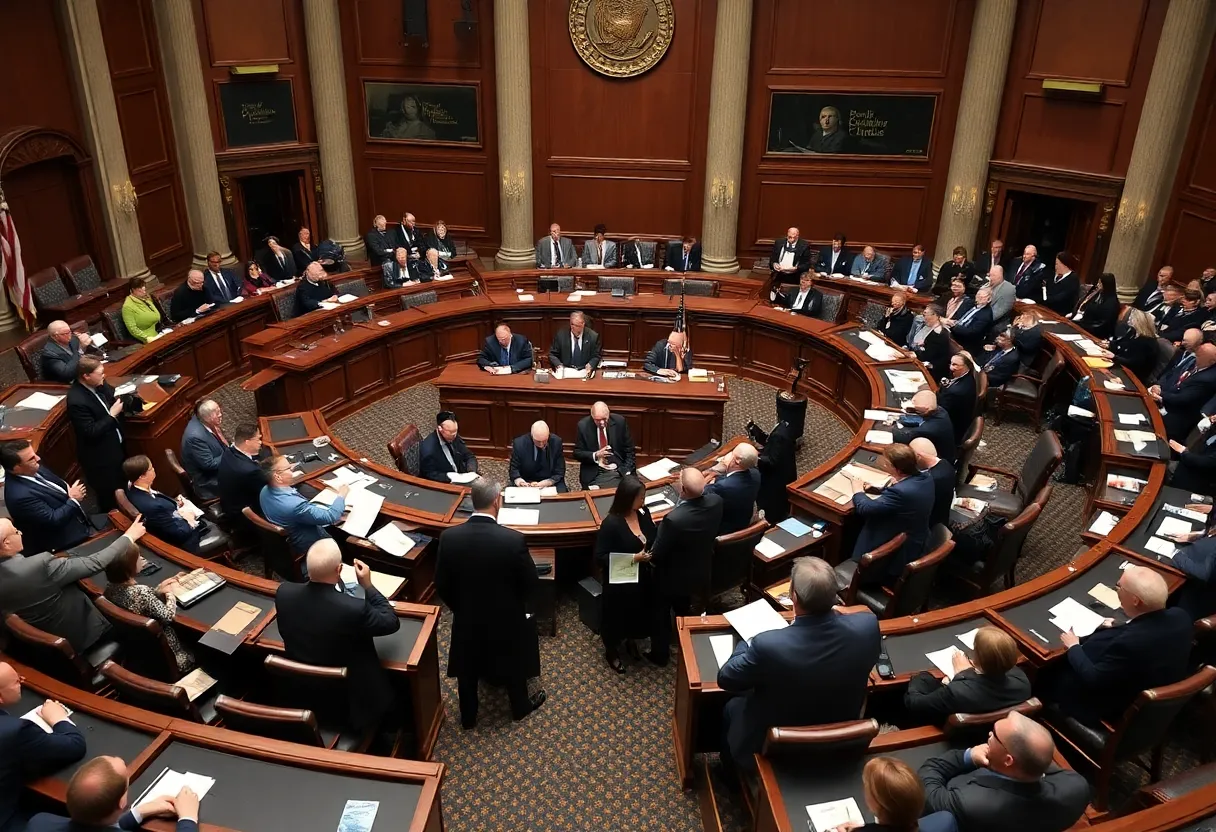News Summary
Kentucky lawmakers are advocating for reforms to address public dissatisfaction with the state’s governance. Key issues include the excessive number of counties and the conditions in juvenile detention centers. Proposed changes aim to streamline county systems and ensure humane treatment of detained youth. The upcoming legislative session will focus on these reforms as well as tax reduction and education funding, amidst calls for improved accountability and resource distribution.
Frankfort
As dissatisfaction with Kentucky’s governance continues to surface among citizens, lawmakers are proposing a range of reforms aimed at addressing long-standing issues within the state’s public institutions. Recent opinion pieces across social media platforms reveal widespread discontent with the state’s handling of resources, particularly in relation to the high number of counties and the effectiveness of juvenile detention facilities.
At present, Kentucky has the third-highest number of counties in the United States, totaling 120. Despite ranking only 25th in population and 37th in land area, the state’s extensive county system has prompted calls for reform. Observers note that the Kentucky Constitution requires residents to live within a day’s travel from their county seat, a stipulation that dates back to the 1800s. This legacy results in inefficiencies, as small counties—22 of which have populations below 10,000—continue to receive equal portions of state road funding as larger counties, leading to an inequitable allocation of state resources.
In light of these challenges, a column has proposed concrete policy changes, beginning with reducing the number of counties in Kentucky. Advocates for this reform argue that streamlining the county system could foster more effective governance and resource distribution, benefiting the entire state population.
Another major concern highlighted in recent discussions involves the conditions in Kentucky’s juvenile detention centers. In response to reports of abuse and neglect within these facilities, House Democrats are advancing House Bill 228, also known as the “Incarcerated Children’s Bill of Rights.” This legislation aims to ensure that juveniles in detention are protected from abuse, receive appropriate educational opportunities, and are not subjected to excessive seclusion or restraint. Lawmakers are emphasizing the importance of humane treatment for these youths and are calling for legislative hearings to address the ongoing issues within the juvenile justice system.
A report detailing past incidents of mismanagement and misconduct in the state’s juvenile facilities has heightened concern about the current state of youth incarceration. The proposed bill is designed to rectify these shortcomings and create a safer environment for detained youth.
In addition to juvenile justice reform, recent proposals also focus on enhancing local control and accountability within government institutions. Senate Bill 71 aims to allow county judges-executive to appoint library board members, thereby aligning library governance with other local boards and simplifying the appointment process.
As the legislative session gets underway in January, Kentucky’s Republican leadership has indicated intentions to pursue tax reforms, specifically a reduction in the state income tax. However, altering the local tax system presents challenges due to the requirement for constitutional amendments. The Kentucky League of Cities is advocating for changes that would provide local governments greater flexibility in generating revenue.
In the arena of education policy, the recent defeat of Amendment 2 has brought attention to the need for alternative approaches to support poorly performing school districts. Senate President Robert Stivers has acknowledged this necessity, suggesting that the failure of the amendment reflects voters’ commitment to public education and aversion to diverting funds towards private schooling options. Contributing factors to the amendment’s defeat included voter confusion and uncertainty regarding its implications, as noted by various representatives.
Historical tensions between lawmakers and the public education sector have intensified mistrust over issues related to education funding. Educators stress the importance of equitable access to educational resources for all students and have expressed concerns that current proposals may further distance education funding from its intended recipients.
Overall, as Kentucky legislators prepare for a new session filled with potential reforms, the overarching themes of accountability, equity, and effective governance continue to resonate among constituents. The outcome of these proposed measures could significantly reshape the landscape of public institutions in the state.
Deeper Dive: News & Info About This Topic
HERE Resources
Major Crackdown on Drug Trafficking in Lexington
Veterans and Public Servants Unite Against Workforce Cuts
Kentucky Senate Prioritizes Film Industry and Tax Cuts
Lexington Celebrates Women’s Role in 19th Amendment Passage
Julie Chrisley Reflects on Life After Prison Sentence
Nurse Sentenced for Stealing Morphine from Patients in Kentucky
Lexington Gains New Student Housing Community
Lexington Unites for Justice and Equality
Thomas Massie Proposes Education Reform in Kentucky
Growth of Degrees in Kentucky’s Higher Education System
Additional Resources
- Kentucky.com: Article on Governance Issues
- Wikipedia: Kentucky
- Owensboro Times: Library Board Reform Bill
- Google Search: Kentucky County Reform
- Kentucky Lantern: Tax Reform Insights
- Google Scholar: Kentucky Juvenile Justice
- Kentucky.com: Education Funding Challenges
- Encyclopedia Britannica: Kentucky Education Reform

Author: STAFF HERE LEXINGTON KY STAFF
The LEXINGTON STAFF WRITER represents the experienced team at HERELexingtonKY.com, your go-to source for actionable local news and information in Lexington, Fayette County, and beyond. Specializing in "news you can use," we cover essential topics like product reviews for personal and business needs, local business directories, politics, real estate trends, neighborhood insights, and state news affecting the area—with deep expertise drawn from years of dedicated reporting and strong community input, including local press releases and business updates. We deliver top reporting on high-value events such as Woodland Art Fair, Crave Food and Music Festival, and Railbird Festival. Our coverage extends to key organizations like Commerce Lexington and Blue Grass Community Foundation, plus leading businesses in education, manufacturing, and technology that power the local economy such as University of Kentucky, Toyota Motor Manufacturing, and Lexmark. As part of the broader HERE network, including HEREBowlingGreen.com and HERELouisville.com, we provide comprehensive, credible insights into Kentucky's dynamic landscape.





